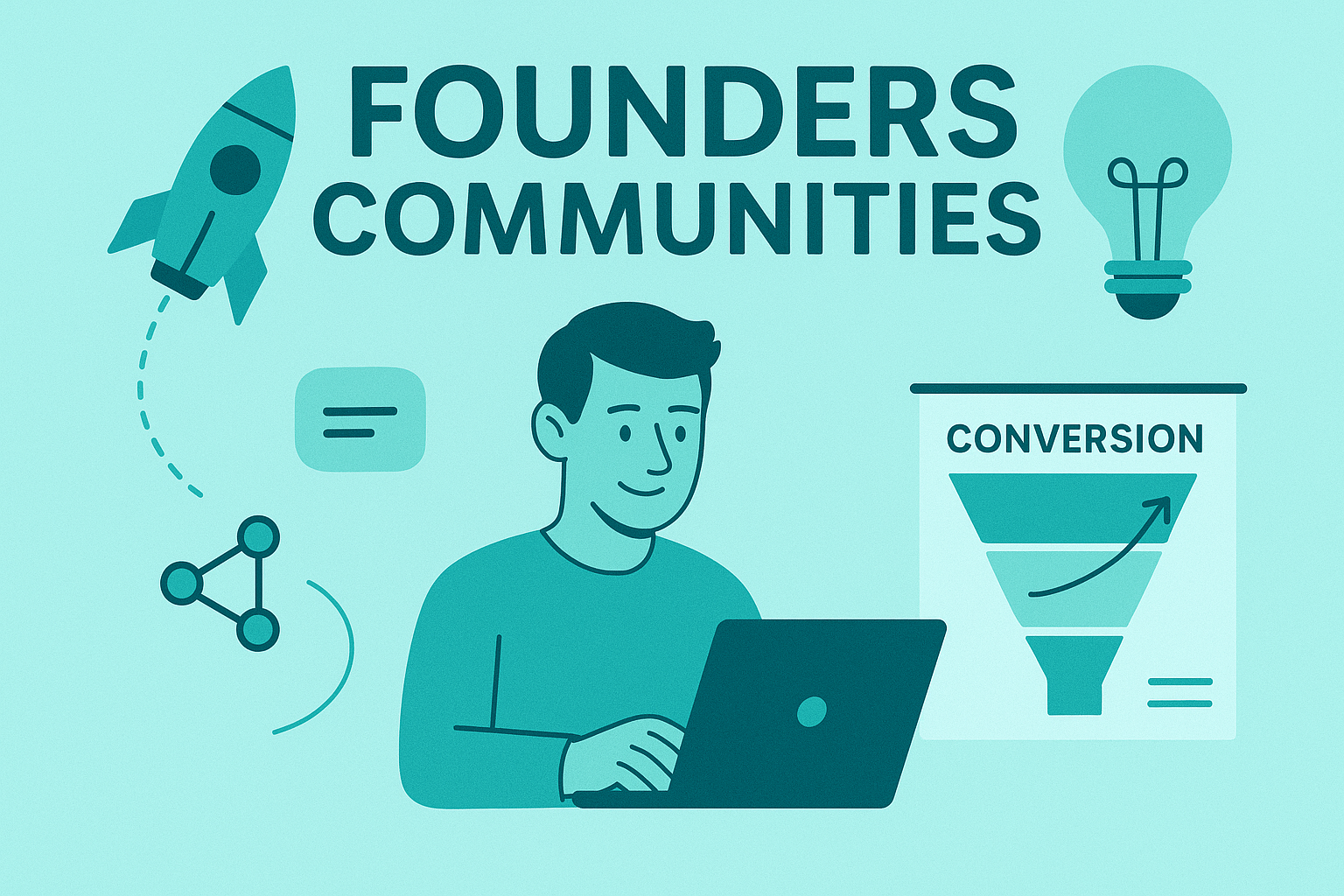
When I started my first startup, it was an incredibly isolating experience. Coming out of school and working full-time for a while, and then suddenly shifting to building something with no guarantee it’ll succeed. The reality is, your friends and family won’t get it. You have to be a little delusional to start something new! “Do you have health insurance?”
Starting your first venture comes with a lot of so-called scars. Things like a co-founder disappearing, launching too late, or running into a dozen other unexpected issues. Startups are dead by default, so you have to do something extraordinary to make them default alive. That means reaching product-market fit. The elusive product-market-fit!
From my experience joining different groups, programs, and meetups, I’ve realized that most founder communities suck except this one. Part of the problem is a lack of real community. There’s no filter, and often the entire group becomes a sales pitch. That’s exactly why the idea behind FoundersBeta came about.
1. Get real support.
Peer-to-peer support is essential, especially early on. Founders need other founders. No one else truly understands what you’re going through.
2. A real community manager makes a huge difference.
Unlike self-serve platforms, having a dedicated community manager, a super-connector that can help founders make the right connections. Whether it’s an intro to an investor or a potential co-founder, an engaged community has the answers.
3. Amplify your story.
Let’s face it: if your startup isn’t growing, you’ll have to shut it down. That’s why it’s essential to be part of a community that puts a spotlight on your work. Storytelling is the missing ingredient for most early-stage startups.
4. Help members get more customers.
One of the biggest pain points for early-stage founders is acquiring customers. It’s not enough to just build a great product you have to get it in front of the right people. That’s why one of my key focus is helping members generate real traction.
Initiatives like the Startup Deals page are designed to drive visibility and interest. Members can list their products or services, offer exclusive discounts, and instantly get in front of a targeted audience that actually cares about startups. This includes other founders, early adopters, and potential partners browsing the page are often in the mindset to try something new or refer tools they find valuable.
5. Think global.
Chances are, most communities are local. But your customers? They’re not just down the street. You need to reach beyond your geography and that’s why connecting with global founders is so critical. This is where FoundersBeta further differentiates itself as a truly global community.
Engaged communities are incredibly powerful. Whether it’s amplifying your story, finding your next hire, or connecting with an investor.
